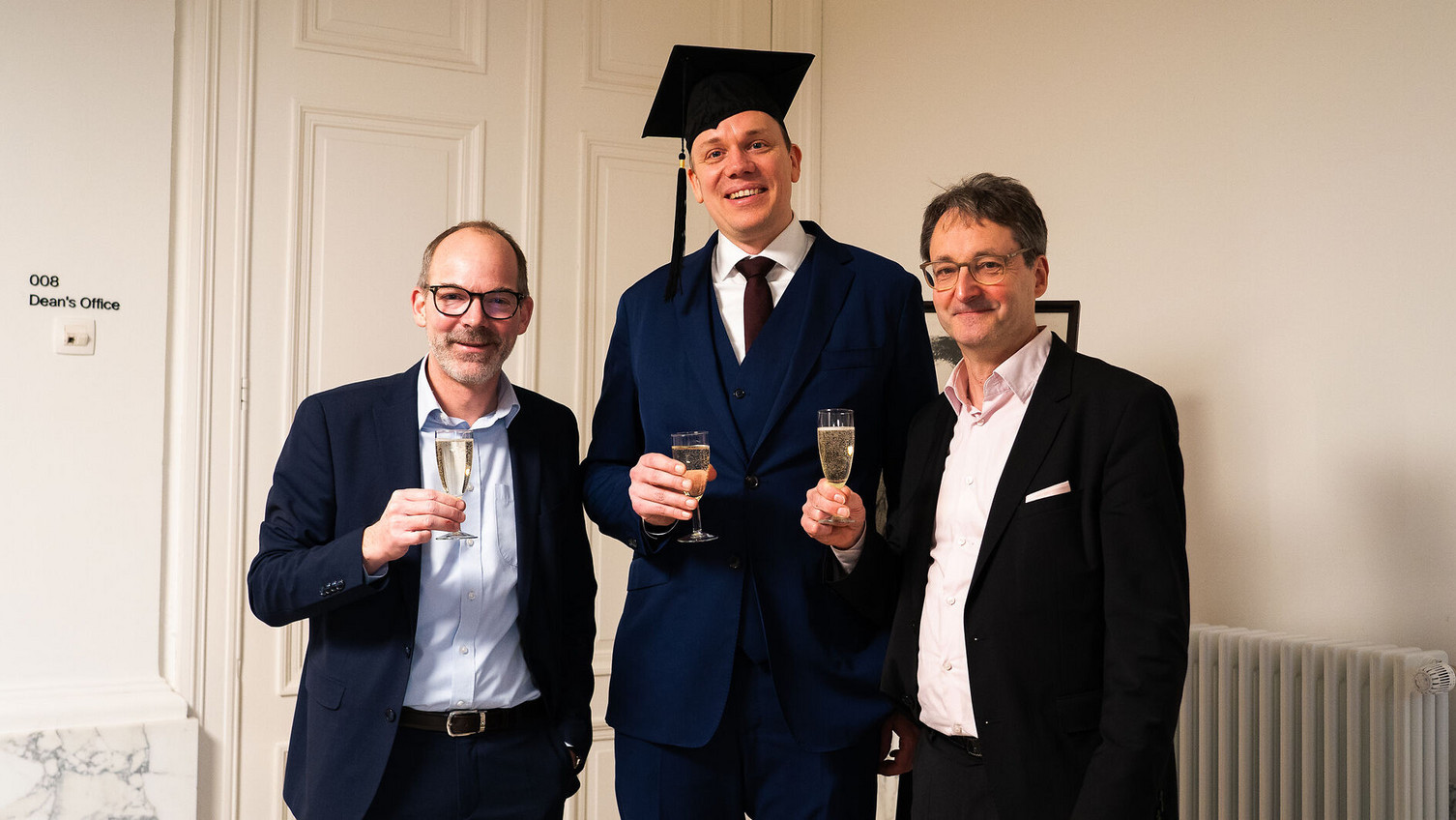Part-time doctorate: Dr. Hendrik Leder - The last game
2025-02-26 Typewriters, combustion engines and letters - in an endgame, entire branches of industry almost completely disappear from the economy. Business information scientist Hendrik Leder wrote his doctoral thesis on this little-researched topic - and founded his own company out of a declining industry.
It sounds paradoxical, but increasing digitalization can also cause problems for a software company. This was the case for Hendrik Leder's old employer. The company developed document optimization software for the mail market: ‘Major customers received postage discounts from Deutsche Post as a result,’ explains Hendrik Leder. With the advent of e-mail, however, the software became less important. The industry experienced a so-called endgame.
The business informatics specialist completed his doctorate on this little-researched topic using the cotutelle procedure: The joint examination procedure at two universities - in this case the University of Antwerp and Leuphana - is completed with a binational doctorate.
After completing his diploma (FH) in business informatics at the University of Applied Sciences for Business in Hanover, Hendrik Leder studied for a part-time Master's degree in Business Process Engineering and graduated with a Master's degree in 2008. In 2014, he completed a part-time Master of Business Administration at the American Purdue University - Krannert School of Management. ‘I have always combined professional practice and studies. Due to my industry affiliation, I became more and more interested in 'declining industries',’ recalls Hendrik Leder.
In Prof. Dr. Sascha Albers (Antwerp) and Prof. Dr. Markus Reihlen, Professor of Business Administration, in particular Strategic Management and Entrepreneurship, he found two doctoral supervisors who supported his connection to the private sector: During his doctorate, the father of three founded his own company. Today, his software company has over 40 employees. ‘I was also able to combine theory and practice excellently during my doctorate. For example, I carried out a case study in my old industry,’ reports Hendrik Leder.
The exciting point is that it is only possible to tell much later whether an industry is in an endgame or not: ‘My research showed that even in a company that deals with correspondence, there is little agreement between employees and management on this issue.’ This is why attempts are often first made to save the company. ‘It's not always enough to reduce costs. Sometimes an entire business model has to be changed,’ says Hendrik Leder.
But an endgame does not have to be a complete farewell per se: ‘There is often the so-called ‘Last Iceman’, for example a company that still manufactures typewriters despite the PC. These niches can be economically successful, but no longer on a mass scale,’ explains Hendrik Leder.
Three specialist articles were written during his cumulative doctorate, reports the business informatics specialist: ‘The field of research into endgames emerged in the 1980s, but not much has been published since then. However, digitalization means that there will be an endgame for many industries in the coming years.’
Let's talk careers with Dr. Hendrik Leder
Founding a company after completing a dissertation or a postdoc phase represents a special change in career path. Research activities, especially in applied sciences, require a high degree of specialized knowledge, and in all disciplines, research means ingenuity, (self-)management skills and the development of innovations - indispensable skills when establishing a start-up. Scientists with a doctorate from various disciplines at Leuphana will talk about their business start-ups and everyday life as entrepreneurs. There will be an opportunity to ask questions and engage in conversation. During the format on 7 March 2025 from 9 to 10.30 a.m. via Zoom, Dr. Hendrik Leder will also report on his experiences. Please register via the link below.

